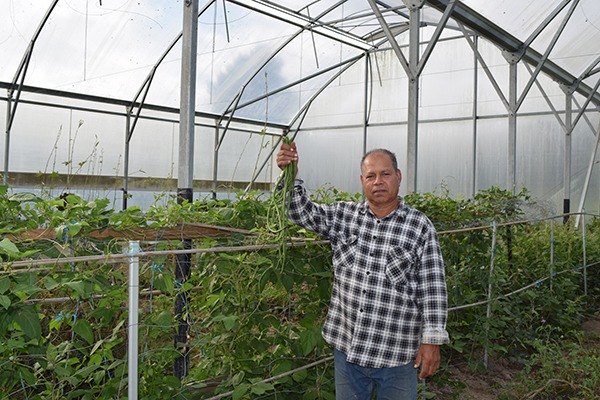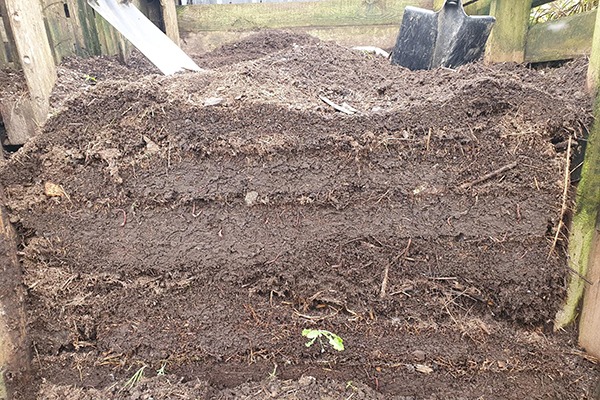Ram Mandir Temple – Henderson
On a farm in Henderson Valley Road, ‘arguably the best compost’ our facilitators have ever seen is being created.
The farm and ashram site is part of the Shri Ram Mandir Charitable Trust, which was set up to build a community centre and place of worship for people of Hindu religion in West Auckland.
Working together
In August 2019, our composting facilitators Richard Main and Hari Narayan started working alongside farm manager Anil Singh, and other members of the temple community, to help establish good composting practices at the farm. They’ve run several workshops since then.
Powered by large quantities of straw, cardboard, cow and chicken manure, as well as food waste and devotee flowers from the temple, there’s now a five bin composting system producing high quality compost, through the hot composting method.
Growing for good

This compost is used to nourish the tunnel house garden beds, where Indian cultural crops such as coriander, amaranth, bitter melon, chillies and long beans are grown, alongside flowers such as marigolds and carnations.
The food grown in the garden is used for temple events, with any surplus given to those in need.
The full circle of growth
“Food waste from the temple then comes back here to be composted through a Bokashi system, so it really is the true meaning of the full circle of growth,” says Richard.
The Bokashi solids are added to the compost bin or buried directly in the garden to improve the soil for growing, while the liquid is diluted and used as liquid fertiliser.
“This is arguably the best compost Hari and I have ever seen,” says Richard.
“Anil is excited to have the Bokashi system working and to see the improvements in the garden, with both hot composting and Bokashi systems now running well.”
